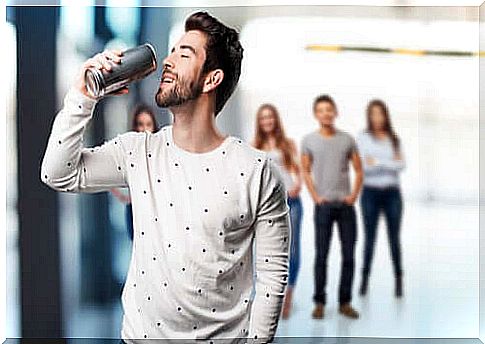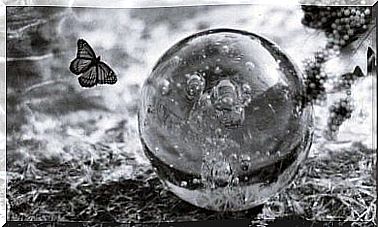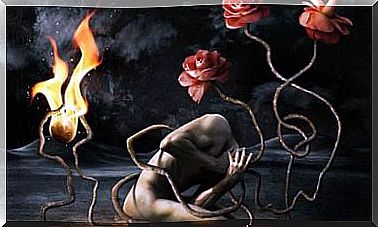Effects Of Stimulating Drinks On The Brain

The full effects of stimulant drinks on the brain are not yet known. This is, in fact, a subject under study and although considerable progress has been made in this regard, there are still many points to be clarified.
An issue to which we must pay due attention since these drinks are taken daily, but it is suspected that under certain conditions they can be harmful.
In the category of stimulant drinks there are traditional ones, such as coffee and tea, but also the so-called energy drinks, which have long had a strong presence on the market.
The questions that arise are: What are the effects of stimulant drinks on the brain? How can we reduce risks and problems? We will try to answer these questions based on the latest scientific discoveries.
Research on the effects of stimulant drinks on the human brain
1. Coffee and tea
Coffee and tea generate the most basic effects of stimulant drinks in our brain. They are present in the diets of millions of people around the world, many of whom claim that their day begins only after drinking a cup of coffee.
Science suggests that a daily intake of no more than 200 mg of coffee or tea is great for health. Caffeine and theine appear to slow down aging and act as protectors against some forms of dementia, such as Alzheimer’s. Furthermore, these drinks act on the brain’s alert mechanisms making us more alert and awake.
However, when consumed in excess, negative effects also occur. A feeling of fatigue, rapid heartbeat, tremor or nausea may appear, as well as various gastrointestinal disturbances.
Caffeine and theine, in fact, are addictive. If their intake is stopped abruptly, all the symptoms of withdrawal syndrome occur.

Effects of strong stimulant drinks on the brain
Energy drinks that contain taurine have become the subject of study for science, as there are strong suspicions as to their harmfulness. Drinks of this type also contain high doses of caffeine, which once ingested reaches the body very quickly. In the short and long term, this sudden discharge has several effects.
Energy drinks damage long-term health, according to a 2014 study at Johns Hopkins University (Baltimore, Maryland). Their main effect is to increase adrenaline levels, which in turn causes an increase in heart rate. This results in higher levels of attention, but also increased irritability and anxiety.
The study cited claims that these drinks cause a brutal rise and fall in caffeine levels in the body. For this reason, about 12-24 hours after ingestion, the withdrawal syndrome appears.
Another study conducted at the University of Bonn (Germany, 2013) confirms that heart contractions and adrenaline levels increase already one hour after consumption .

Surprising data
A study published in the scientific journal PLOS ONE found that severe brain injuries were seven times more common among volunteers who had consumed five or more doses of energy drinks in the previous week.
Dr Michael Cusimano, a neurosurgeon at St. Michael’s Hospital, expressed concern about the growing prevalence of this type of injury among young people, who are the main consumers of energy drinks.
It has become common for many kids to drink these drinks during exam sessions or to achieve better sports performance. Likewise, it is known that on many occasions they are mixed with alcohol which exacerbates its effects on the sympathetic nervous system.
Dr. Liane Schmidt and her colleagues published an article in the journal bioRxiv describing an experiment on two groups of volunteers; one group was given energy drinks, the other regular drinks. The participants were unaware of this difference.
They then underwent a test to assess their cognitive performance. Surprisingly, they all performed better than a previous test. Again the placebo effect worked.
Conclusions
Studies show that stimulating drinks alter our brain activity. It is a fact that must be taken into account in order to regulate its consumption and thus avoid unwanted effects.









